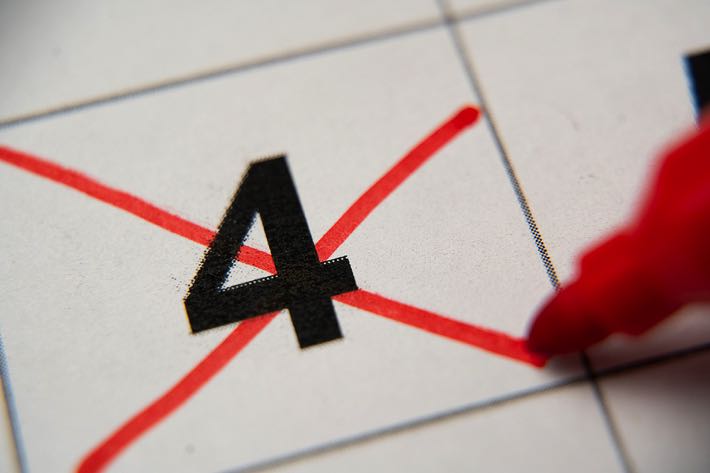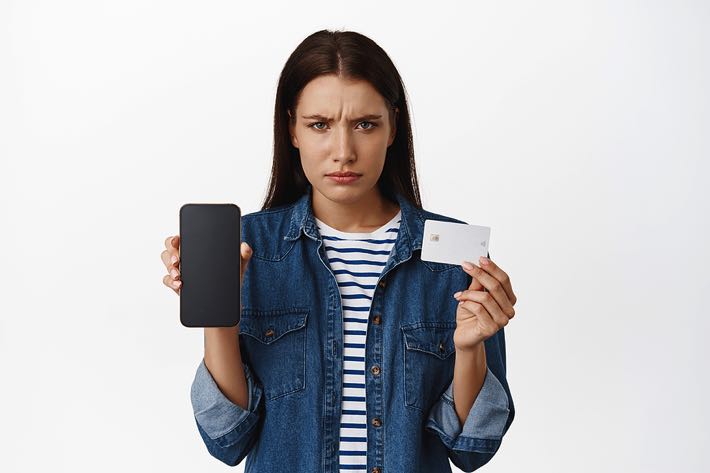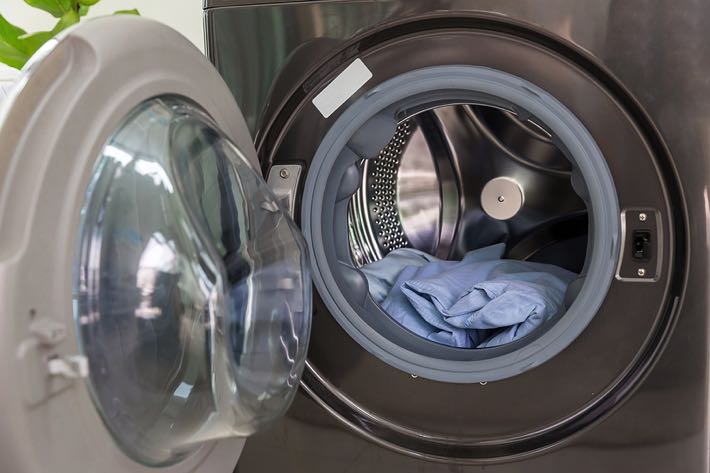 For many, winning the lottery would be a dream. Seeing millions of pounds loaded into your bank account to alleviate the financial pressures of life is something that many people would simply love to see happen. It goes without saying that, for some at least, winning the lottery proved to be more trouble than it was worth, pitting families against one another and seeing friendships fall apart. Yet for the majority of people, winning the lottery is something that would be life-changing in every single aspect, which is so many of us play it in the first place.
For many, winning the lottery would be a dream. Seeing millions of pounds loaded into your bank account to alleviate the financial pressures of life is something that many people would simply love to see happen. It goes without saying that, for some at least, winning the lottery proved to be more trouble than it was worth, pitting families against one another and seeing friendships fall apart. Yet for the majority of people, winning the lottery is something that would be life-changing in every single aspect, which is so many of us play it in the first place.
Things don’t always work out as we might have hoped for, however. There have been numerous examples over the years of people that have missed out on winning the biggest prizes. We are not talking about examples where someone missed out by just one number, but rather when they got all six numbers but, before they could hand in their ticket, the dog ate it. Those kinds of ridiculous things that almost seem too outrageous to be true, but that have happened and left the unlucky people they’ve happened to heart-broken. Here’s a look at some of the stories:
The £64 Million That Went Unclaimed
 Perhaps it is somewhat misleading to refer to this as an ‘unlucky player’, given that we’ve no real idea what happened. All we do know is that the National Lottery launched a publicity campaign to try and find a EuroMillions winner who missed out on claiming a prize of £63,837,543.60. That was the largest unclaimed lottery win ever at the time, not least of all because of the £645,000 in interest that would have been added to the prize. The ticket, which was sold in Hertfordshire on the 8th of June in 2012, ended up going to charity.
Perhaps it is somewhat misleading to refer to this as an ‘unlucky player’, given that we’ve no real idea what happened. All we do know is that the National Lottery launched a publicity campaign to try and find a EuroMillions winner who missed out on claiming a prize of £63,837,543.60. That was the largest unclaimed lottery win ever at the time, not least of all because of the £645,000 in interest that would have been added to the prize. The ticket, which was sold in Hertfordshire on the 8th of June in 2012, ended up going to charity.
There are any number of reasons why someone might not have claimed the prize, with players having 180 days to get their ticket in and receive their money. A spokesperson for the National Lottery said, “The vast majority of prizes are claimed within the 180 days but to avoid this unfortunate situation happening again, we would urge all National Lottery players to check their tickets on a regular basis.” The millions that went unclaimed were paid to sports, the arts and heritage charities that were part of the National Lottery’s Good Causes group.
The ‘Unluckiest’ Lad in Britain

Some people would say that the person that won £64 million but was never able to claim it was more unlucky than the lad who nearly won £14,189,900, simply by virtue of the amount of money that they missed out. Yet consider this: you’re out with your mate and they say that you should buy a lottery ticket after noting that you ‘seemed a lucky person’. You oblige, buying a ticket and wait to see how it turns out. When you check your numbers, you’ve hit every single one, including the two bonus numbers. Hallelujah.
That is exactly what happened to then 23-year-old, Rossi Carmina, on the 3rd of January, 2022. The only problem was, the numbers he matched with were for the draw on the 4th of January and he’d accidentally bought his ticket for the draw on the 7th. The freelance artist had dreamt of buying a Ferrari and a new home for his mum, but instead had to convince himself that it was really fate that stopped him from winning. He said, “I don’t want to live my life thinking about what could have been. There’s been so many comments saying ‘I couldn’t live with myself’, but I’m alright. It’s happened, what can I do. It might have been fate.”
When Your Numbers Come Up, But Your Account Doesn’t

Few lottery near-misses are as heart-breaking as the story of Rachel Kennedy, a 19-year-old who should have won £182 million. On the 26th of February in 2021, the numbers that Rachel and her boyfriend, Liam McCrohan, usually played (6, 12, 22, 29, 33, 6 and 11) came up on the EuroMillions. The bad news was that her online account didn’t have enough money in it to mean that a ticket could be automatically bought. What made the story even harder to stomach was the fact that, when she opened the app, she was told her numbers were ‘A winning match’.
She said, “I called the number thinking that I had won £182 million and they said ‘yeah you’ve got the right numbers but you didn’t have the funds in your account for the payment of the ticket so it didn’t actually go through’.” Reacting to the news, the National Lottery said that they had ‘heard about the story’ and ‘hope she gets in early to buy a ticket for the next big draw’. Rachel’s story is something of a cautionary tale for people that always play the same numbers and know what they are: if you don’t buy a ticket, heart-break might be what comes next.
The Husband That Lost the Winning Ticket

If you’re happily married then some might say that you’ve already won the lottery of life. For a woman in Coventry, however, that theory was very much put to the test when her husband lost their winning lottery ticket. The anonymous woman in her 70s checked the numbers that she played in a notebook that she kept for her records and discovered that they’d won the EuroMillions draw on the 8th of October in 2010. She wrote her numbers down, she said, because her husband always took the tickets off her.
“I play every week. I play the lottery, the EuroMillions and the Thunderball – but my husband takes the ticket off me and I don’t see it again.” Joy turned to despair when her husband confessed that he’d lost the ticket, believing that he’d thrown it away with the rubbish. “I’ve turned the house upside down. I’ve looked in his pockets and in my bag and everywhere. I’ve said to my husband, ‘You’re never going to get another ticket off me’. He loses everything I give him. Only last night I found a lottery ticket that had won £10 in the bin.”
When Missing Out on Millions Leads to Divorce

Back in 2001, Martyn and Kay Tott thought that their lives were about to change forever. They were right, but not in the way that they initially believed. They had bought a winning lottery ticket but lost it, meaning that they should have reported that to the National Lottery within 30 days. When those days passed, the pair began to bicker and fight. The near win, according to Martyn, ‘quickly highlighted’ the couple’s differences, with the pair eventually deciding that their relationship had reached its conclusion, getting divorced not long after.
Martyn was reasonably philosophical about the whole thing, saying, “There is no guarantee it would have brought me happiness.” The couple, who were living in Watford at the time, didn’t realise they were would-be winners until six months after buying the ticket, with the computer of their local Londis showing that Kay had purchased the winning ticket. When they went to tell Lottery organisers, however, they were informed about the 30-day rule. Camelot spent 45 days deliberating the fortunes of the Totts before deciding that their luck, like their marriage, had run its course.
The American & the Washing Machine

In November 2020, a winning SuperLotto Plus ticket was sold at an Arco AM/PM store in the Norwalk area of Los Angeles in the United States of America. The winning numbers for the draw were 23, 36, 12, 31 and 13, with the Mega Number being 10. The winner would have received either $26 million in annual instalments or $19.7 million as a cash payout (before tax). Meanwhile, the store where the ticket was bought would have been in line for a bonus of $130,000, which was about £92,000, but bad luck struck the winner.
An anonymous woman claimed that she bought the ticket at the store but put it in the wash, forgetting to take it out of pocket before adding it to the laundry. She went into the store the day before the deadline and told them her story, with the manager then getting up CCTV footage of her buying the winning ticket. This was given to Californian Lottery officials, but lottery rules say that anyone that thinks they are a winner must provide evidence, such as a photograph of the back of it. The cash was instead donated to schools across California.
The French Woman Who Went on a Spending Spree

The whole point of the EuroMillions is that tickets are sold across the continent. For that reason, it isn’t just in the United Kingdom where people come close to winning but somehow just miss out, as a woman in France discovered to her detriment. This was back in 2014 when a woman was convinced that she had won the biggest prize of the EuroMillions, heading out on a shopping spree as soon as she’d seen the lottery numbers. She bought jewellery, clothes and expensive perfumes, writing cheques to cover the costs.
After spending in excess of $4,000, her husband checked the ticket and realised that one of the digits didn’t match the winning numbers. The woman, whose identity was never disclosed, tried to avoid being prosecuted by saying that her handbag has been stolen and it wasn’t her that had written the cheques. Unfortunately, CCTV footage proved that that wasn’t the case, so she ended up in court and was handed a four-month suspended sentence in addition to being told to repay her debts in instalments. It just goes to show you should always triple-check your tickets.
The Friends That Binned $1 Million

Salvatore Cambria and Erik Onyango were friends who lived in New York and bought a ticket for the United States of America’s Powerball lottery. They checked the numbers on the lottery website and discovered that they weren’t winners, so they threw the ticket away. It was only the following day that they realised that they were actually winners, failing to realise at the time that the lottery’s website hadn’t been updated and was showing the winning numbers from the previous draw, meaning that their million dollars had been thrown away.
As is often the case in the overly-litigious country of America, the pair tried to sue the Lottery Commission of New Jersey. The failure to update the website meant that their ticket was, as their lawyer put it, ‘headed to a garbage dump somewhere in Canada’. The woman that worked in the 7-Eleven where the winning ticket was bought, Glady Gannon, said, “I remember that night he was in here and I sold it to him – three individual tickets on the Powerball.” They kept the other two tickets, which they said proved they had bought the winner because of the serial numbers.